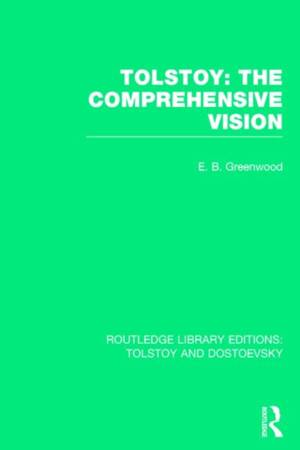
- Retrait gratuit dans votre magasin Club
- 7.000.000 titres dans notre catalogue
- Payer en toute sécurité
- Toujours un magasin près de chez vous
- Retrait gratuit dans votre magasin Club
- 7.000.0000 titres dans notre catalogue
- Payer en toute sécurité
- Toujours un magasin près de chez vous
Description
Tolstoy was as much a philosopher as a novelist. From the entries in his early diaries through to the great novels he was constantly searching for a comprehensive vision, equal to 'the confusion of life'. It was in his personal diaries that Tolstoy first attempted a 'literary psychology' to reveal those thoughts and feelings we conceal from ourselves, then inventing the interior monologue to expose the psychology of his characters.
Emphasising the importance of these early characteristics for Tolstoy's development as a writer, this volume, published first in 1975, assesses Tolstoy's character-portraits in the light of his engagement with the question of the nature of happiness and the problem of historical truth in fiction. Greenwood also considers Tolstoy's views on society and education, his understanding of the psychology of war, and in the later chapters critically examines his answers to the religious questions that increasingly preoccupied him as he matured.
Spécifications
Parties prenantes
- Auteur(s) :
- Editeur:
Contenu
- Nombre de pages :
- 194
- Langue:
- Anglais
- Collection :
Caractéristiques
- EAN:
- 9781138803213
- Date de parution :
- 08-08-14
- Format:
- Livre relié
- Format numérique:
- Genaaid
- Dimensions :
- 163 mm x 234 mm
- Poids :
- 430 g

Les avis
Nous publions uniquement les avis qui respectent les conditions requises. Consultez nos conditions pour les avis.






